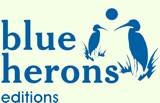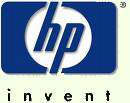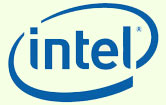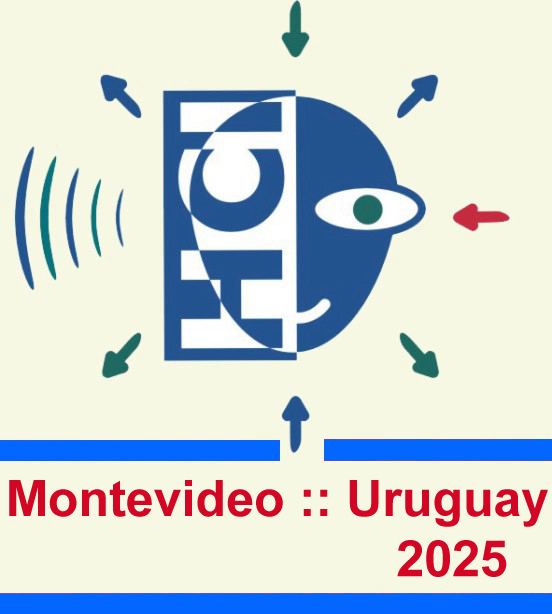
Fourteenth International Conference on
Advances in New Technologies, Interactive Interfaces and Communicability
( ADNTIIC 2025 )
:: Montevideo – Uruguay ::
November 18 – 20, 2025
| Home |
| Topics |
| Important Dates |
| Paper Submission |
| Organization |
| Program |
| Registration |
| Publications |
::. BBK .::
Birkbeck University of London
UK
::. CNR - IMM .::
National Research Council
Italy
::. FUN .::
Future University Hakodate
Japan
::. IIMROHTAK .::
Indian Institute of Management Rohtak
India
::. ITB .::
Institute of Technology Bandung
Indonesia
::. KETTERING .::
Kettering University
USA
::. KNU .::
Kainan University
Taiwan
::. LEEDS .::
University of Leeds
UK
::. MCU .::
Ming Chuan University
Taiwan
::. METU .::
Middle East Technical University
Turkey
::. MJU .::
Myongji University
South Korea
::. MSU .::
Moscow State University
Russia
::. NUU .::
National United University
Taiwan
::. NYC .::
New York University
USA
::. POLITO .::
Polytechnic University of Turin
Italy
::. POLSL .::
Politechnika Slaska University
Poland
::. PURDUE .::
Purdue University
USA
::. QUT .::
Queensland University of Technology
Australia
::. TSINGHUA .::
Tsinghua University
China
::. U-AIZU .::
University of Aizu
Japan
::. UAI .::
Interamerican Open University
Argentina
::. UBA .::
University of Buenos Aires
Argentina
::. UC .::
University of Cincinnati
USA
::. UCC .::
University College Cork
Ireland
::. UCM .::
Complutense University
Spain
::. UCOL .::
University of Colima
Mexico
::. UCR .::
Universidad de Costa Rica
Costa Rica
::. UHK .::
University of Hong Kong
China
::. UIOWA .::
University of Iowa
USA
::. ULB .::
Free University of Brussels
Belgium
::. UM .::
University of Malta
Malta
::. UMD .::
University of Michigan-Dearborn
USA
::. UNC .::
National University of Córdoba
Argentina
::. UNIGE .::
University of Genoa
Italy
::. UNILJ .::
University of Ljubljana
Slovenia
::. UNIMIB .::
University of Milano-Bicocca
Italy
::. UNIST .::
University of Split
Croatia
::. UNIVE .::
Ca' Foscari University of Venice
Italy
::. UOC .::
University of Creta
Greece
::. UofO .::
University of Ottawa
Canada
::. UOI .::
University of Ioannina
Greece
::. UPR .::
University of Puerto Rico
Puerto Rico
::. US .::
University of Sevilla
Spain
::. USC .::
University of Southern California
USA
::. UWI .::
University of the West Indies
Jamaica
::. VMMI .::
Virtual Maastricht McLuhan Institute
the Netherlands
::. VUA .::
Vrije Universiteit Amsterdam
the Netherlands
::. WASEDA .::
Waseda University
Japan
::. WSU .::
Wayne State University
USA
TOPICS |
|
Hence topics from the whole range of software engineering, educational quality, communicability, human-computer interaction, mobile multimedia, extended reality, interactive design, innovative coding tools for developers, social impact of AI, new frontiers in human/robotics interfaces, and so forth, are welcomed. Last year’s symposiums, workshops, conferences, and so on, organized by ALAIPO and AInCI, for instance, included research works on the topics (see below the alphabetical order). An extensive listing connotes and reflects the requirement and also skill necessary to find intersection zones of the disciplines among the different domains, fields, and specialties, which at the same time potentially boosts and merges the formerly different scientific views (see below the main areas). All contributions –papers, workshops, demos, research-in-progress, posters, doctoral consortium, etc., should be of high quality, originality, clarity, and significance. In the current international conference it is demonstrated how with a correct integration among professionals of factual, formal and natural sciences interesting research lines in the following subjects "Advances in New Technologies, Interactive Interfaces and Communicability: Design, e-Commerce, e-Learning, e-Health, e-Tourism, and Web Evolution" and other computational main areas are solicited on, but not limited to (alphabetical order): :: Communicability and Design • Aesthetic and Creative Design :: E-commerce • Benchmarking :: E-learning • Collaborative Learning :: E-health • Bioengineering :: E-tourism • Augmented / Mixed / Virtual Reality for New Media Art :: Interactive Interfaces • Advances in Human-Computer Interface :: Digital Information and New Media • Architecture Documentation :: Software and Systems Engineering • Heuristic Assessment: Innovative Methods, Techniques and Tools • Big Data
|
|
| © 1997 - 2025 AINCI & HCI Lab | ||||
|---|---|---|---|---|































